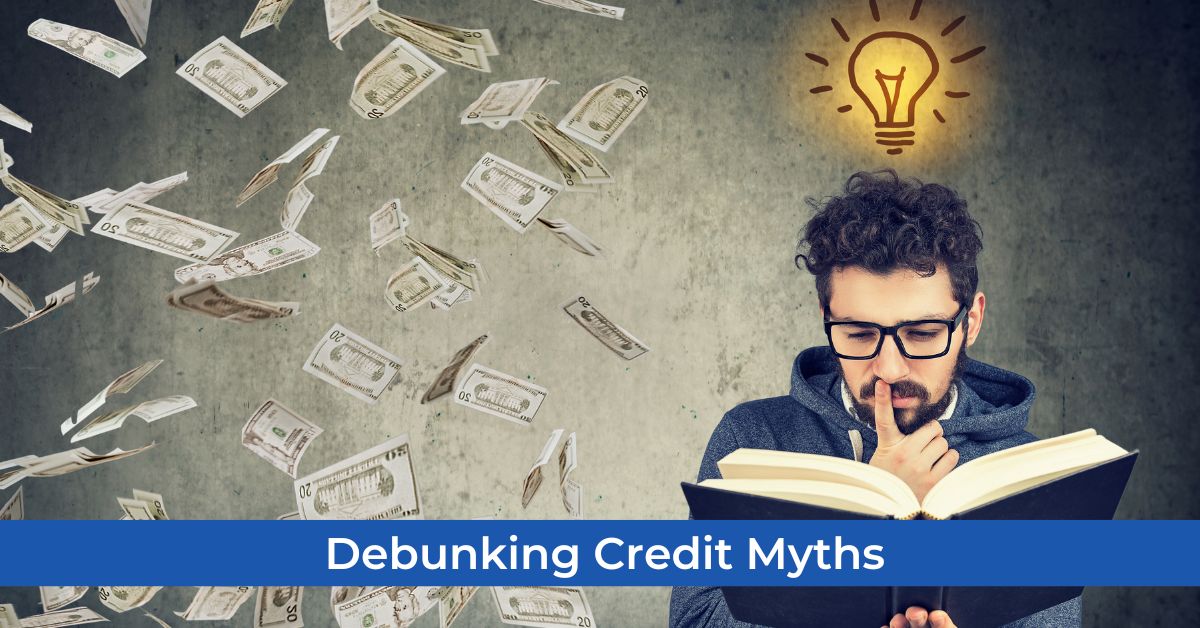Our credit has been a massive part of our lives. Every purchase and every debt affects our credit. That is why working on our credit has also become part of our daily lives. You may see various tips online and on ad posters on ways to increase your credit score. But are they all true, or are they myths?
[If you need credit repair help, you can contact our credit agent.]
Debunking Credit Myths
Asking For a Credit Report Will Hurt Your Credit
This is one of the credit myths. Asking for your credit report won’t hurt your credit score; it can help boost your credit score. By checking your credit report, you will be able to dispute inaccurate information on your credit report.
You can also get your free credit report every 12 months from credit bureaus. Canada has two credit bureaus which are Equifax and TransUnion.
Closing Credit Cards Help Boost Credit Score.
Again, this is a myth. Closing credit card accounts, especially the old ones, can lower your credit score because it will shorten your credit history. It is advisable to keep your old credit cards active to help you boost your credit score.
Closing credit cards can also increase your risk as a borrower from your lender’s point of view. So it is better to keep your old credit card accounts.
All Credit Reports Are The Same
No, they are not. Your creditors or lenders may report to credit bureaus or only one. That is why you have different credit scores on other credit bureaus. And that is one of the reasons why you should check on both credit bureaus.
Approaching Your Credit Limit Will Not Affect Your Score
It does. Your lender may assume you have bad spending habits and may increase your risk as a borrower. Not only that, but it will also decrease your credit score. Even if you pay your monthly balance, if your credit utilization is high, it will affect your credit score.
Co-signing Does Not Affect Your Credit Score
Like how you positively affect their credit score, you can also be involved if they fail to meet their obligations. If you want to maintain your credit score, you might think twice about co-signing, even if it’s for a family or friend.
Remember, if you co-sign for an individual, you will become responsible for their debts.
Higher Salary = Higher Score
No, that is not the case. Your credit score is based on how you pay for your debt rather than how much you make. If you have a high salary and pay your debts on time, your credit score will increase. If not, it will hurt your credit score, no matter how much your salary is.
Paying Off Debt Can Remove Late And Missed Payments
Missed and late payments will stay on your credit report for at least seven years, even if you have paid for that debt already. Missed and late fees will not only hurt your credit score but can also stay on your credit report for a long time.
if you ask for credit help, make sure they don’t have bad credit repair service. Or else, you’ll end up with worse credit.
Paying The Minimum Keeps Your Scores Up
Your credit score will only increase if you pay for the entire balance. Even if you are paying the monthly minimum. In fact, paying the minimum won’t have an effect on your credit score.
Creditors look at how much you owe compared to how much you have available.
Your Relationship Status Affects your Credit Score
In credit, it doesn’t matter if you are single, married, or separated. The only thing that matters is your paying habits as a borrower. So even if you are single or living alone, if you are responsible for paying your debts, you won’t worry about your credit score.
Divorce Takes Away The ex-spouse’s Bad credit.
If you have joint accounts, you can ask your creditor to close the account or get individual accounts. If there are still joint accounts and your ex-spouse use that but fail to meet obligations, then your credit score will be affected.
Divorce doesn’t mean a ticket way out of bad credit. If you ignore your joint accounts with your ex-spouse, it will follow you everywhere and keep decreasing your credit score.
Conclusion:
Research is essential when you want to boost or maintain your credit score. But confirming if the information that you have gathered is accurate is likely the most helpful.
You can hear and read these myths on the internet and in ads. You can see it frequently, and you might believe it’s true. If you do your research, ensure you are on a trusted page.
If you need credit help, there are many good credit companies you can consult to.




